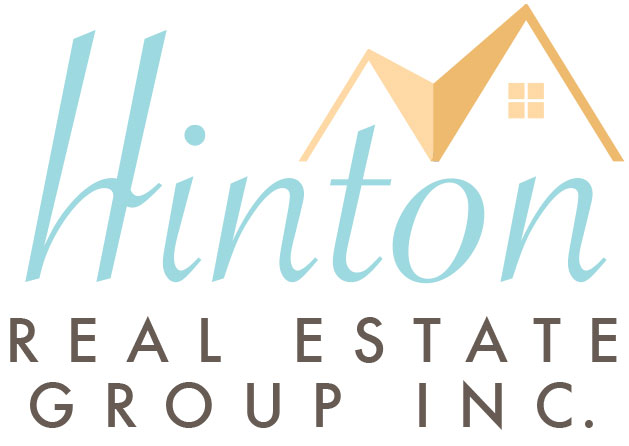Breast Cancer Awareness Month: Because Our Lives Depend on It
/This is Breast Cancer Awareness Month
This is Breast Cancer Awareness Month—and here at Hinton Real Estate Group and Hinton Home Loans, we’re taking this moment to speak up, share life-saving information, and support those in our community who’ve been touched by breast cancer.
Breast Cancer Is Personal
The statistics are staggering, but they don’t tell the whole story. One in eight women in the U.S. will be diagnosed with breast cancer in her lifetime. Over 44,000 people die each year from this disease. But behind every number is a name. A family. A journey.
You probably know someone—a friend, a coworker, a relative, maybe even yourself—who has faced it. And if you don’t, someone close to you does.
That’s why awareness matters. It’s not just about pink ribbons. It’s about real lives, early detection, and knowing what to look for—because when breast cancer is found early, it’s often treatable.
What Exactly Is Breast Cancer?
At its core, breast cancer is the uncontrolled growth of abnormal cells in the breast. These cells can form a tumor that may stay in place or spread to other parts of the body.
It primarily affects women, but men can get breast cancer too. No one is immune.
There are different types:
Invasive Ductal Carcinoma (IDC): The most common type. Starts in the milk ducts and spreads.
Ductal Carcinoma In Situ (DCIS): Non-invasive but can become cancerous if untreated.
Invasive Lobular Carcinoma (ILC): Begins in the milk glands and spreads to nearby tissue.
Inflammatory Breast Cancer (IBC): Rare and aggressive. It doesn’t always form a lump.
Triple-Negative Breast Cancer (TNBC): Harder to treat because it doesn’t respond to common therapies.
Metastatic Breast Cancer: Cancer that has spread to other parts of the body like the bones, liver, or brain.
Treatment isn’t one-size-fits-all. It could include surgery, chemotherapy, radiation, hormone therapy, or a combination of approaches. The right plan depends on the person, the type of cancer, and how far it has spread.
Who’s at Risk?
The short answer? Anyone with breast tissue. But some people are at higher risk.
Some risk factors you can’t change:
Family history of breast or ovarian cancer
BRCA1 or BRCA2 gene mutations
Age (risk increases over 50)
Dense breast tissue
Early menstruation or late menopause
And some are lifestyle-related:
Lack of physical activity
Drinking alcohol regularly
Being overweight, especially after menopause
Not having children or having them later in life
Long-term hormone replacement therapy
But here’s what’s important to understand: some people develop breast cancer with no known risk factors at all. That’s why staying aware—doing your self-checks, getting regular screenings, and listening to your body—is so important.
How You Can Take Action (Right Now)
You don’t have to be a doctor or researcher to help fight breast cancer. You just have to care. And take one step.
Schedule a mammogram.
If you’re 40 or older—or if breast cancer runs in your family—it’s time to get checked.
Know what’s normal for your body.
Do your self-exams. If something feels different, say something. You know yourself best.
Talk to your people.
Tell your mom, your sister, your best friend—it’s time to get screened.
Support a local survivor.
Drop off a meal. Offer a ride to treatment. Just sit with them. Showing up matters.
Donate, share, or volunteer.
Support trusted organizations that are doing the work every day.
Need Support? You’re Not Alone
The journey through breast cancer is hard—but no one should go through it alone. The National Breast Cancer Foundation (NBCF) offers free, practical support for anyone touched by the disease.
Here are a few places to start:
Beyond the Shock®: A free educational video series for people just diagnosed.
NBCF Support Community: A safe online space to talk with others who understand.
Patient Navigation Program: Get help managing appointments, insurance, and emotional overwhelm.
Free Mammogram Locator: Find low-cost screening clinics near you.
Hope Kits: Care packages with comfort items for people in active treatment.
You can explore these and more at:
www.nationalbreastcancer.org/breast-cancer-resources
Our Commitment to You
As a Black-owned, woman-led business, we also need to name a hard truth: Black women are 40% more likely to die from breast cancer than white women, even though the diagnosis rates are about the same.
Why? Systemic barriers. Delayed diagnosis. Gaps in access to care.
We believe in doing something about it. By sharing information. Uplifting stories. Supporting each other. And making sure that everyone—no matter where they live or what they earn—gets access to the screenings and care they need.
Let’s Keep Showing Up—for Each Other
If you’ve survived breast cancer, we celebrate your strength.
If you’re in the fight right now, we stand with you.
If you’ve lost someone you love, we grieve with you.
This October—and every month—we promise to keep showing up, spreading awareness, and using our voice to lift up yours.
Because knowledge saves lives. And community saves souls.
Learn more. Share more. Do more.
Visit www.nationalbreastcancer.org to learn, give, or get support.





